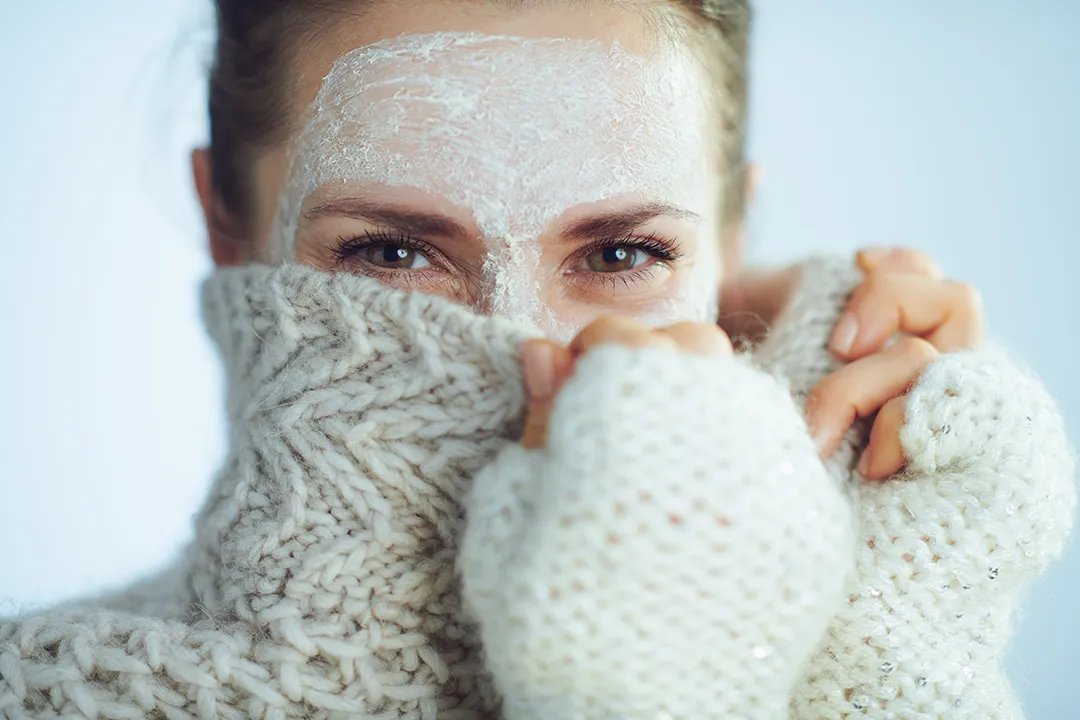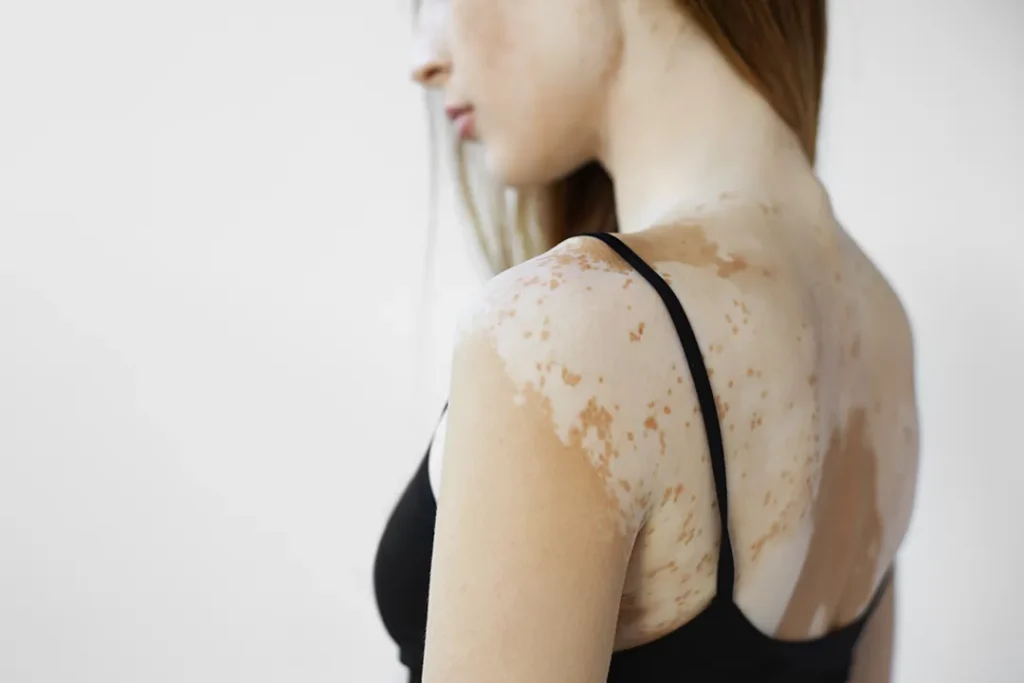The Hot and Cold of Seasonal Skincare
Summer sun and heat can be harsh on skin, but winter’s frosty grip presents a whole new set of challenges. Here’s a comparison:
Summer: Hot weather kicks your oil glands into overdrive, making skin oilier and prone to breakouts. Sun exposure damages skin cells, leading to sunburn, wrinkles, and hyperpigmentation.
Winter: Colder temperatures and lower humidity means dry air which zaps moisture from the air, leaving skin dry, itchy, and tight. Wind can further irritate and worsen dryness. Indoor heating dries the air even more, compounding the problem.
By adapting your products and habits to the season, you are essentially giving your skin the best possible defence against environmental challenges. This translates to less dryness, irritation, and breakouts, keeping your skin healthy and radiant year-round.
Why Winter Weather Is Your Skin’s Enemy
In essence, summer skincare is all about managing excess oil and sun protection. Winter care, on the other hand, focuses on intense hydration and barrier repair. Here’s why:
- Drier air depletes your skin’s moisture, leading to dryness, flakiness, and irritation.
- Colder temperatures can also slow oil production, further drying your skin.
- Hot showers can strip away natural oils, worsening the problem.
In a nutshell, when your skin barrier is weakened, your skin is more susceptible to irritation from harsh products and environmental factors. Think of it as a leaky roof – your skin struggles to keep moisture in and irritants out, leading to dryness, redness, and a whole lot of discomfort. Here are ways to repair that leak before any more damage is done…
Get Personalised Advice from Professionals
“A good skincare regimen should always be created based on your unique skin needs,” observes Dr Austin. A consultation with one of the passionate medical skin team at Austin Clinic can help you zero in on specific problems and goals and identify the best treatments and products for you. “Winter skin is often dull, so I recommend a professional facial about every four weeks,” she says.
Regular facials will help to keep your skin clean, clear and hydrated while maximising your everyday skincare regime. It takes approximately four weeks for your skin to move through the full life cycle of skin cell growth, so a monthly facial is advisable. A superficial chemical peel or microdermabrasion is needed in order to slough off dead skin and allow better absorption of active topical skincare.
Drink in It, Bathe in It: Water is IN for Winter
A great way to keep your skin and whole body in tip-top shape is to stay hydrated. One tip is to swap out coffee (a diuretic) for green tea, which has excellent antioxidant effects. While we’re singing the praises of water, let’s talk about the value of bathing in it. Baths are a gift to dry winter skin. They can be a source of relaxation to counteract skin-damaging stress hormones.
What Not to Drink
Staying hydrated is vital, but what you drink is important too. Research shows the sugar content in many carbonated beverages can trigger inflammation in a way that worsens skin conditions like eczema, acne, and psoriasis. By the same token, alcohol has a dehydrating effect, and can also disturb sleep – a time when the body is working on general skin repair and regeneration.
The Right Cleanser: Gentle, Gentle, Gentle
Gentle cleansing is a must: you need your skin barrier to be as healthy as possible so that it can retain vital moisture. As a rule of thumb, if your skin feels tight after washing it is likely that the cleanser you are using has disrupted your skin barrier. Skin should feel calm and hydrated after washing, so if you are reaching immediately for your moisturiser you may want to consider a gentler cleanser.
Are You Using the Right Moisturiser at the Right Time?
Do you find yourself re-applying your moisturiser throughout the day? If so, it is likely you need to make a change for winter. If you are using a lotion, consider moisturising cream. “I recommend you massage it into your skin for 30 seconds to maximise its effects,” says Dr Austin.
Occlusive moisturisers are especially valuable for your evening routine. The occlusive effect of such ingredients essentially shields the skin and gives it time to repair itself or maintain its natural barrier function.
Winter-friendly products like richer moisturisers, creams, and gentler cleansers from Austin Skin couple beautifully with our in-clinic treatments. Together they help replenish moisture and protect your skin’s barrier. This keeps your skin feeling comfortable, healthy and free of winter woes. Why not make an appointment today?




